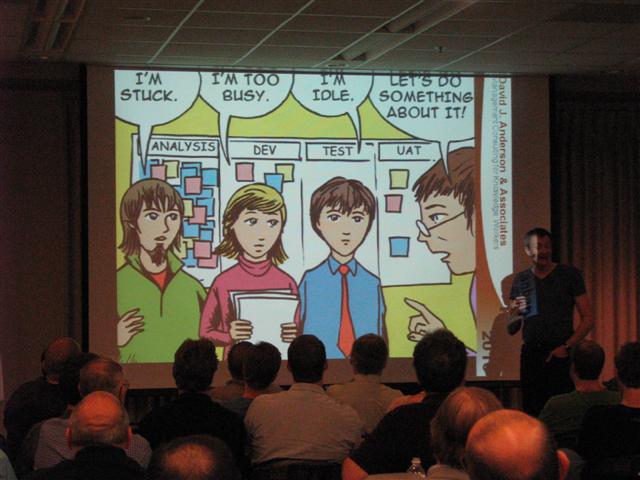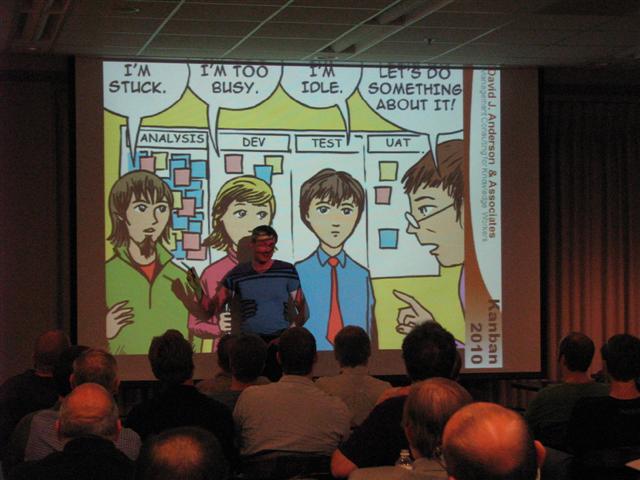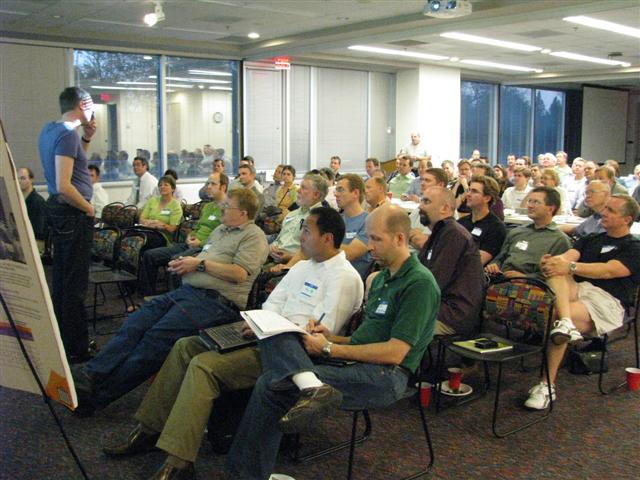(I thought it appropriate since he espouses lean methodologies that he was wearing skinny jeans.)

Now this picture is not creepy because the girl in the cartoon is hugging David.

The Agile-Lean-CS-Spinners:

The main benefit of the standup meetings at a job was the after-meetings that allowed small teams of people, instant quality circles, to discuss and solve problems. This also struck me as a real benefit of this meeting - a chance to catch up with long-lost tech friends in the Austin community.

My random jottings:
Since academic software is seasonal, they share "Classes of Service" with car racing.
At the StandUp meeting only manage exceptions.
Many organizations only have a shallow implementation of Lean.
Real Kaizen is people just doing their jobs.
The meeting was a success - thanks to John Heintz for buying meals for everyone.
